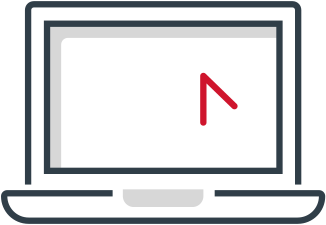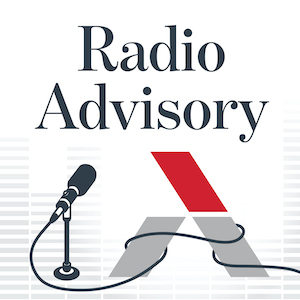Auto logout in seconds.
Continue LogoutThroughout the Covid-19 pandemic, misinformation has been a problem, and some of it has been coming from doctors. This has led medical experts nationwide—including the American Medical Association (AMA) House of Delegates—to issue calls to address these medical professionals disseminating Covid-19 misinformation.
Radio Advisory: Aaron Carroll on how clinicians can combat medical misinformation
Physicians, medical groups issue call to action
Almost 100 physicians in Alaska signed a letter issued to the state's medical board to investigate local doctors publicly spreading misinformation.
Merijeanne Moore, the letter’s author, said an event held last month featuring prominent vaccine skeptics inspired the call for action.
Leslie Gonsette, a signer of the letter, said, "It's very shocking to see that the very people that are supposed to care for our community are actually pushing this agenda and indirectly actually causing deaths."
Similarly, the Aspen Institute released an analysis saying misinformation is jeopardizing efforts to solve the Covid-19 pandemic, among other challenges including climate change and political polarization.
In the analysis, the Aspen Institute blames the rapid growth of misinformation on the rise of social media, as well as a decline in local journalism and a loss of trust in institutions.
The report calls for regulations on social media platforms, stronger and more consistent rules for "superspreaders" of misinformation, and investments in authoritative journalism and other organizations teaching critical thinking and media literacy.
The report also calls for a national strategy to combat misinformation, stripping some social media platforms' legal immunity regarding ad-promoted content. It says lawmakers should consider laws to make social media platforms more transparent and accountable to the public as well as officials.
AMA adopts resolution to address 'disinformation'
The AMA's House of Delegates on Monday adopted a new policy aimed at addressing disinformation promoted by members of the medical community and all types of media, MedPage Today reports. The group distinguishes misinformation ("false or inaccurate information shared largely unwittingly" from the subcategory of disinformation, which is misinformation that is "created with deliberate intentions to deceive").
"[W]hen physicians … and other medical professionals join in this disinformation, the effects can seriously undermine the public health efforts of the whole medical community," said Kavita Arora, a delegate for AMA's Young Physicians Section.
Humayun Chaudhry, president and CEO of the Federation of State Medical Boards (FSMB), said he supports AMA's resolution and that FSMB has also made efforts to address disinformation. This includes an FSMB statement released in July saying that medical professionals sharing misinformation about Covid-19 vaccines "represent[s] a breach of professional responsibility and could result in disciplinary action by state medical boards, including the suspension or revocation of a medical license."
Jesse Ehrenfeld, who spoke for AMA's Board of Trustees, also supported the resolution but argued that asking for collaboration with stakeholders is "likely not sufficient."
According to Ehrenfeld, AMA's board believes there needs to be "a more comprehensive" strategy, which could include advocacy groups, health solution stakeholders, and the Center for Health Equity.
Ehrenfeld recommended AMA's board prepare a report and develop an organizational strategy to be presented at the House of Delegates' next meeting in June 2022. (Grant, MedPage Today, 11/16; Gleeson, Becker's Hospital Review, 11/15; Klepper, Associated Press, 11/15; Firth, MedPage Today, 11/16; Berman, Anchorage Daily News, 11/15)
Listen to the Radio Advisory episode
Medical misinformation has been a significant problem for a long time, but amid the Covid-19 pandemic, the problem has become even more widespread. In this episode, host Rachel Woods sits down with Dr. Aaron Carroll, author, professor, and Indiana University chief health officer—to discuss what all clinicians should do to combat medical misinformation.
Plus, Advisory Board experts Solomon Banjo and Pam Divack offer their take on clinician’s role in online spaces (with patients and with each other) and translate those same principles for the rest of the industry.
Don't miss out on the latest Advisory Board insights
Create your free account to access 1 resource, including the latest research and webinars.
Want access without creating an account?
You have 1 free members-only resource remaining this month.
1 free members-only resources remaining
1 free members-only resources remaining
You've reached your limit of free insights
Become a member to access all of Advisory Board's resources, events, and experts
Never miss out on the latest innovative health care content tailored to you.
Benefits include:
You've reached your limit of free insights
Become a member to access all of Advisory Board's resources, events, and experts
Never miss out on the latest innovative health care content tailored to you.
Benefits include:
This content is available through your Curated Research partnership with Advisory Board. Click on ‘view this resource’ to read the full piece
Email ask@advisory.com to learn more
Click on ‘Become a Member’ to learn about the benefits of a Full-Access partnership with Advisory Board
Never miss out on the latest innovative health care content tailored to you.
Benefits Include:
This is for members only. Learn more.
Click on ‘Become a Member’ to learn about the benefits of a Full-Access partnership with Advisory Board
Never miss out on the latest innovative health care content tailored to you.


